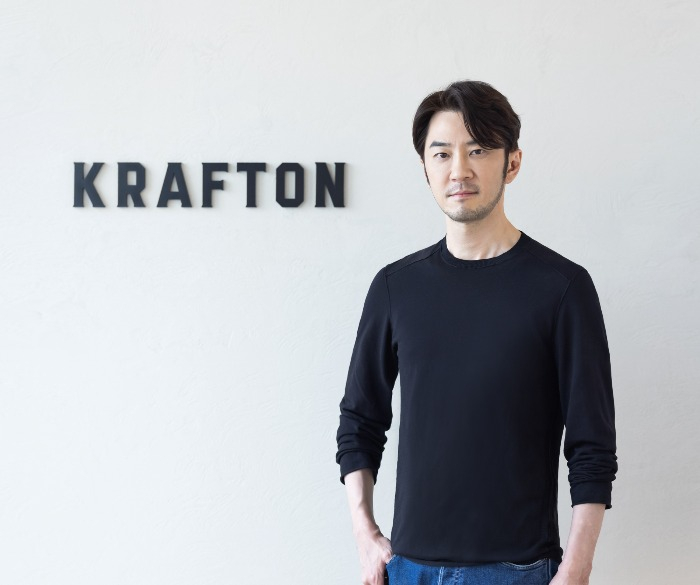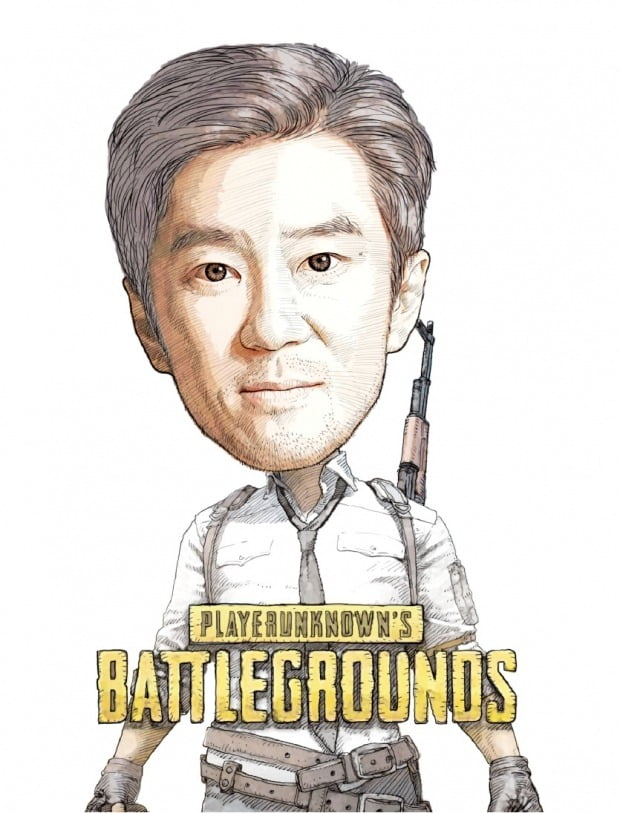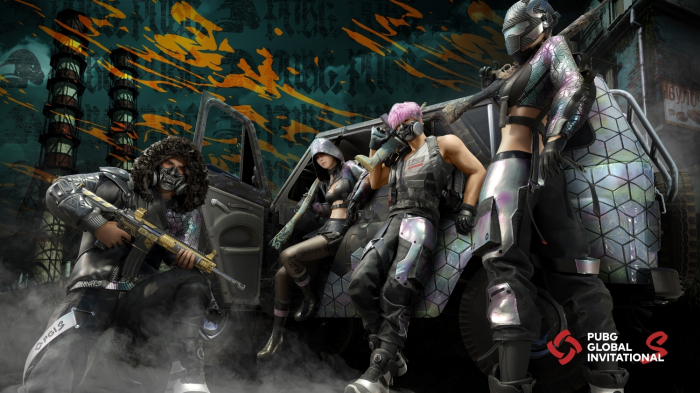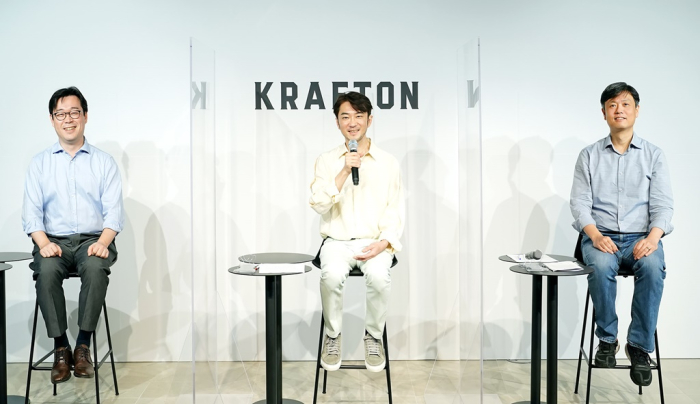Chief Executives
Father of Krafton's PUBG eyes the expansion of games
CEO Kim Chang-han is pioneering new business areas, saying 'games will become the most powerful medium'
By Aug 24, 2021 (Gmt+09:00)
5
Min read
Most Read

In September 2020, Krafton Inc.ŌĆÖs blockbuster game PlayerUnknownŌĆÖs Battlegrounds (PUBG) hit a major roadblock. India prohibited Chinese smartphone applications including Battlegrounds Mobile, a PUBG mobile version, citing data privacy concerns. But industry sources said the South Asian country took the measure as revenge amid a border dispute between the two nations. Battlegrounds Mobile was hard hit by the ban since a Chinese game company handled the gameŌĆÖs sales in India, according to the sources.
That disrupted KraftonŌĆÖs global marketing strategies since PUBG, which was released in 2017 as a PC game, was sweeping overseas markets, especially in Asia and North America.
SWIFT BREAKTHROUGH
The ban put the leadership of KraftonŌĆÖs chief executive officer Kim Chang-han, who took the position in June of last year, to the test. The destiny of Battlegrounds Mobile's 180 million downloads in India lay in his hands.
Kim decided to sell the game directly in India, a tough challenge for a South Korean game developer. Few of KraftonŌĆÖs domestic competitors have launched games in India. But he saw a chance of success from direct sales in India, given the characteristics of mobile games, including convenient payment. Krafton set up a subsidiary in the country -- with its population of 1.4 billion -- two months after India banned Battlegrounds Mobile, becoming the first South Korean game maker to establish a unit there.
ŌĆ£India has strong growth potential given its population,ŌĆØ Kim said, adding that the country is a key hub for the global game industry. ŌĆ£I have witnessed how successful games in India spread to the Middle East and North Africa via Turkey and Pakistan. A company leading the Indian market will secure a major growth engine for the future.ŌĆØ
To succeed in India, Krafton sought more ways to attract users there, including collaborations with local celebrities and customized elements for the country. It created virtual training with an Indian background. It changed the bloodstain effect from red to green in response to local criticism that the game was too gory.
In addition, recently Krafton has made the largest investment in India among South Korean companies, excluding manufacturers, having spent $70 million there so far this year. Krafton made such an investment to expand its online business there and work with Indian IT industry.
Krafton's move was a huge success. Battlegrounds Mobile India (BGMI), which was released in July only in India, clocked 50 million downloads on Google Play in about six weeks since the gameŌĆÖs launch, becoming a ŌĆ£national gameŌĆØ after a nine-month hiatus.

FATHER OF PUBG
Kim is known as the ŌĆ£father of PUBGŌĆØ since he led the development of the blockbuster game. Kim earned a bachelorŌĆÖs and a masterŌĆÖs degree in computer science from Korea Advanced Institute of Science and Technology (KAIST) and began his career as a founding member of a game startup during his doctoral studies at the university. Kim developed three massive multiplayer online role-playing games (MMORPG) but all of them failed. In 2014, he joined Bluehole Studio, KraftonŌĆÖs predecessor, and hit the jackpot with PUBG.

His next strategy was Esports as Kim judged that the sustained popularity of PUBG was as important as its global spread.
ŌĆ£The era of playing games is moving to the era of watching games,ŌĆØ Kim stressed.
In 2018, the PUBG Global Invitational (PGI), Krafton's first global Esports competition, was held in Berlin, Germany. More than 30,000 fans watched the event. The company in March this year successfully hosted the PUBG Global Invitational.S (PGI.S). About 10 million fans watched the online competition where 32 teams from eight countries battled it out for a $7 million prize.

But Kim had another mission as he became CEO amid concerns that the company heavily relies on a single game.
ŌĆ£It is my new role to lead the company to create the second and third Battlegrounds and make games the most powerful medium in entertainment,ŌĆØ he said.
MULTINATIONAL, MULTICULTURAL DEVELOPMENT SYSTEM
The company still needs to secure more intellectual property (IP) for further growth. It is hard to improve global competitiveness solely with local manpower. The company is developing games in five independent studios and 17 overseas units. Its overseas workforce accounts for 25% of its total employees, the highest among South Korean game makers. Kim hired foreigners from the early stages of PUBG's development.
ŌĆ£We donŌĆÖt need to lock ourselves in with certain rules just because we are a Korean game company. We are trying to combine the strength of overseas manpower with what we are good at.ŌĆØ
Kim has also been emphasizing creativity, even saying ŌĆ£the purpose of a game development is not a box office hit.ŌĆØ
He told employees that the process of game making should be fun although any game must attract core fans with the best innovative or global elements. Kim believes focusing on the fun and competition of the game will result in achievements beyond revenue.
IMPORTANCE OF MANPOWER
Krafton has set a talent-oriented system as its main management strategy for this year.
ŌĆ£We must fully invest in talent for the company and its members to grow together,ŌĆØ Kim said.
The company raised its wages to the highest level in the domestic game industry, including a total 30 billion won ($25.7 million) in incentives and a 20 million won increase in annual salary for developers.
In February, Krafton established it so-called ŌĆ£ChallengersŌĆÖ UnitŌĆØ along with a program to train game producers. The ChallengersŌĆÖ Unit initiative allows new and existing employees to create new games and test out their initial versions. The training program is an in-house system to help new and experienced developers grow their competitiveness. Kim also participated in the program as the chief production officer.
Krafton is also keeping an eye on the potential of artificial intelligence. Kim set up the direction of the research, leading the overall development from the early stage. The company plans to expand its deep learning unit to about 50 members this year as it is developing a deep learning language model with local AI startup VoyagerX.
ŌĆ£Games will become the most powerful medium as time spent playing games increases. The impact of games in the entertainment arena will become even greater going forward,ŌĆØ Kim said.

Write to Joo-Wan Kim at kjwan@hankyung.com
Jongwoo Cheon edited this article.
More to Read
Comment 0
LOG IN









